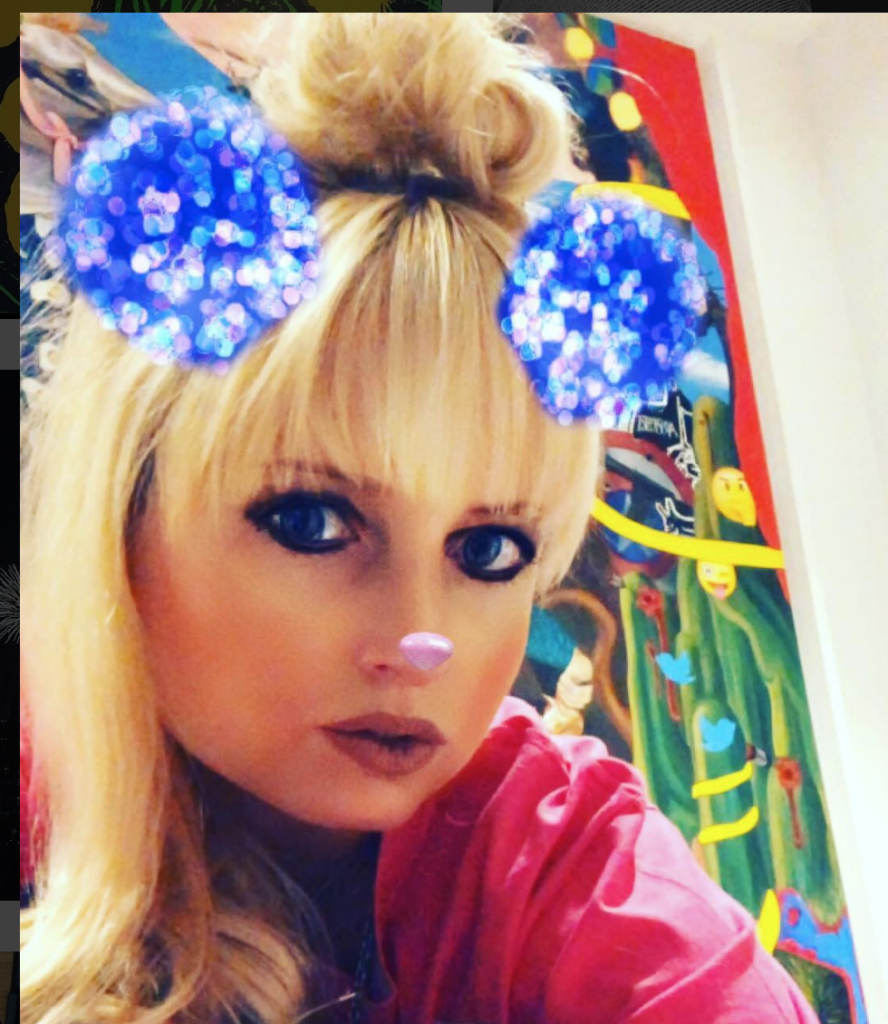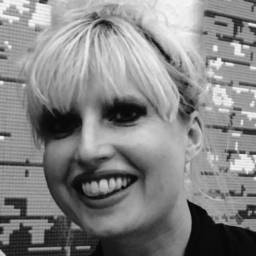Angela Gulbenkian, a German woman who married into one of Europe’s wealthiest and most renowned art collecting families, faces two charges of theft in London for art deals gone awry—and now, a warrant is out for her arrest. She stands accused of stealing £1.1 million ($1.4 million), most of which relates to the sale of one of Yayoi Kusama’s famous polkadot yellow pumpkin sculptures.
Hong Kong-based art advisor Mathieu Ticolat alleges that his firm, Art Incorporated, paid Gulbenkian—who was claiming to represent an anonymous seller—$1.38 million for the 179-pound pumpkin. The deal went into contract in April 2017, but the pricey artwork, he contends, never arrived.
“There are a number of people with claims against Angela,” Christopher Marinello of Art Recovery International told artnet News. He has been working with Ticolat since late 2017 to get the money back. “We’re going to be relentless.” (Gulbenkian told Bloomberg she had offered to arrange the delivery of the Kusama before legal proceedings were initiated; Marinello denies this.)
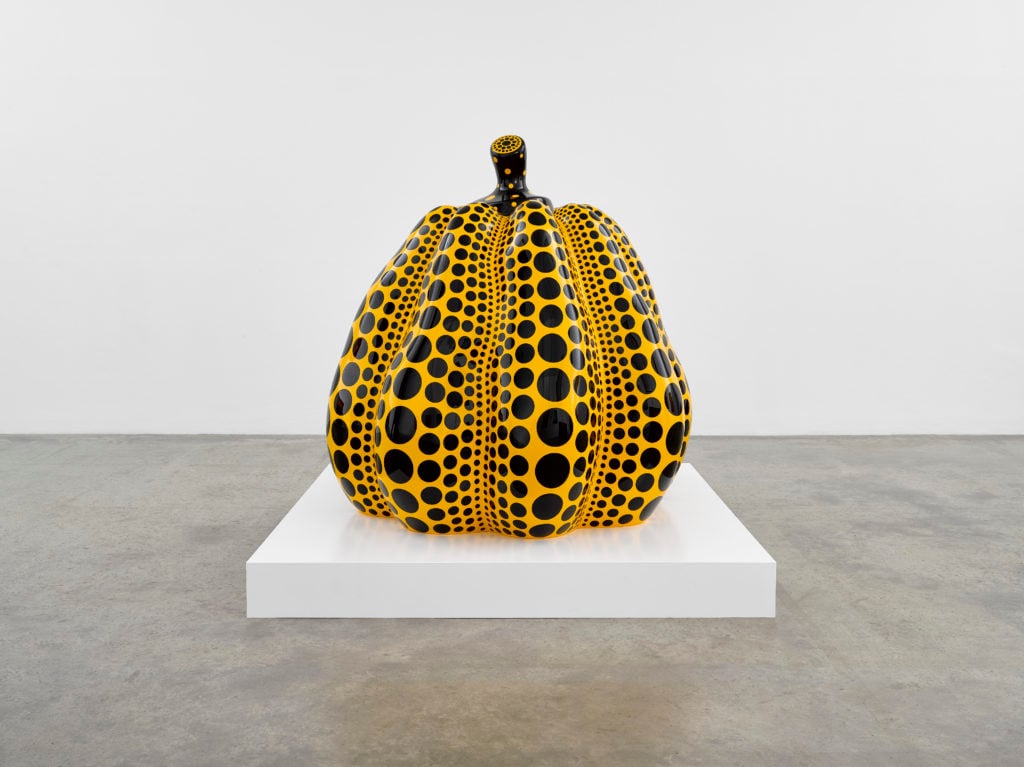
Yayoi Kusama, PUMPKIN (2018). A similar work by the artist was part of a failed deal arranged by Angela Gulbenkian. She now faces charges of theft, and a warrant for her arrest has been issued in Germany. Courtesy Ota Fine Arts, Tokyo/Singapore/Shanghai and Victoria Miro, London/Venice. © Yayoi Kusama.
Born Angela Ischwang, Gulbenkian, age 37, is married to Duarte Gulbenkian, great-grandnephew to Calouste Gulbenkian, the British-Armenian art collector and oil baron. But despite her famous surname, Gulbenkian is affiliated with neither the Calouste Gulbenkian Museum nor the Calouste Gulbenkian Foundation, the family’s official institutions in Portugal, which are said to be worth a collective $3.6 billion, according to Bloomberg.
Ticolat filed a criminal complaint against Gulbankien in January 2018. Gulbenkian was notified to appear at Westminster Magistrates Court on May 21, the BBC reports. The court date was postponed until yesterday. Gulbenkian did not appear, citing her recovery from a surgical procedure.
But Bench chairwoman Claire Harris felt “substantial concern” about Gulbenkian’s doctor’s letter “and the ambiguity of the document,” according Sutton & Croydon Guardian. The court denied her request for a second adjournment, issuing a warrant for Gulbenkian’s arrest in Germany.
Marinello echoed Harris’s skepticism about the letter, written in German. “In fact, we have information that she’s been seen at various art fairs around the world,” he said.

Angela Gulbenkian (left). Photo by Angela Gulbenkian, via Instagram.
Gulbenkian’s online presence still presents her as a high-flying art collector. Her Instagram account, @pantaraxia, identifies her as “Fine Art Collector | Gulbenkian Private Art Collection” and, at one point, according to Marinello, an associate was conducting correspondence via an @gulbenkian.foundation email address. She previously ran the London company FAPS-Net with art adviser Florentine Rosemeyer until spring 2018. Rosemeyer subsequently hired Gulbenkian at her new Munich venture, Rosemeyer Art Advisors, but the company’s website currently makes no mention of Gulbenkian.
As of press time, Gulbenkian’s lawyers had not responded to inquiries from artnet News.
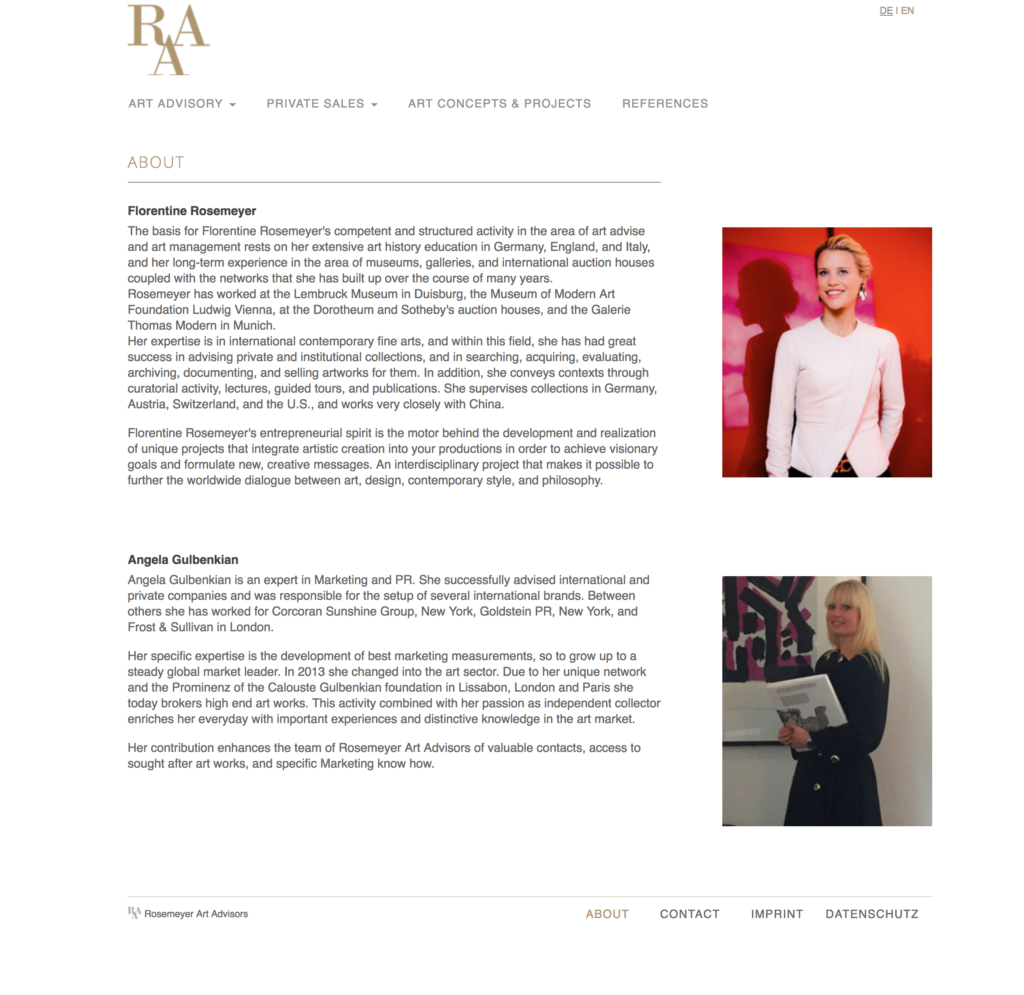
Angela Gulbenkian’s former business partner, Florentine Rosemeyer subsequently hired Gulbenkian at her new Munich venture, Rosemeyer Art Advisors. This screenshot of the company website was taken on May 31, 2018.
The court proceedings also include a second criminal charge against Gulbenkian over money allegedly stolen from her client Jacqui Ball. Marinello says he has also heard from other parties who are seeking to recover money from Gulbenkian, including London interior design firm Percy Bass Ltd., which redid her bedroom in the style of a Kusama pumpkin.
“Percy Bass was told Angela was part of the Gulbenkian Foundation of Portugal. Percy Bass started work on the flat as they were told funds for a deposit were coming from Portugal. They received a forged bank transfer notification from the Millennium BCP bank in Portugal from the Gulbenkian Foundation,” Patricia Maher, a firm employee, wrote in an email provided to artnet News by Marinello. “No payment was ever received.”
Separate from the new criminal case, Ticolat filed a High Court civil suit against Gulbenkian in June 2018. That month, a Singaporean company, Artseen—either the pumpkin’s owner or an intermediary in the transaction—informed Ticolat that it had never received his payment, and that the work had subsequently sold to a third party.
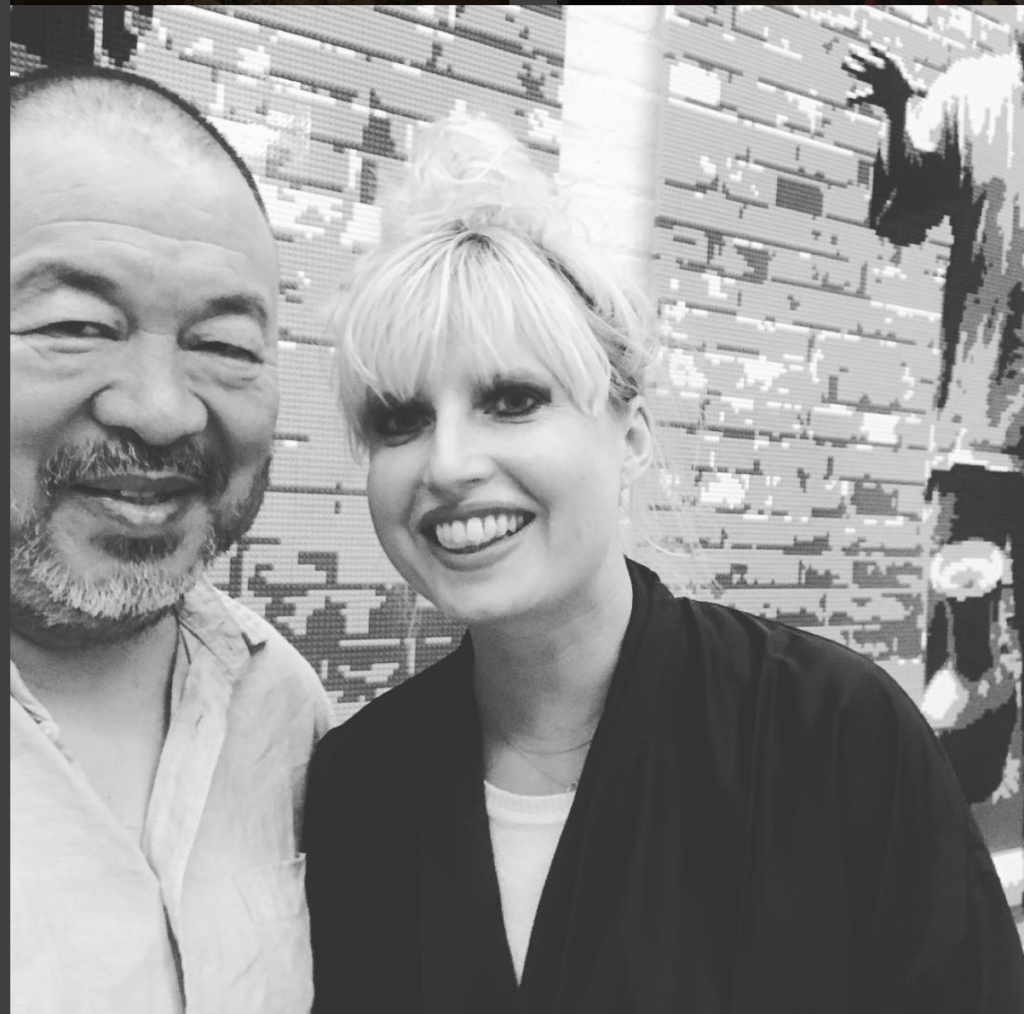
Ai Weiwei with Angela Gulbenkian. Photo via Instagram.
Last summer, a judge agreed to freeze Gulbenkian’s assets, and gave her until August 20, 2018 to pay Ticolat back in full, at which point the case would be dropped. Gulbenkian ignored the ultimatum, and failed to file a defense, leading to a default judgment against her from the court in November.
“We will pursue Angela and anyone who has handled these funds anywhere in the world until they are returned in full,” Marinello insisted, adding that he is considering pressing criminal charges against some of Angela’s family members. “We know where some of the money has gone of course. Angela spent a great deal of it on private jets, lingerie, travel, a masseuse, interior design work, paid part of her rent…”
He is frustrated by how slowly the case has been moving through the British judicial system. “Look at Anna Delvey,” Marinello said, referring to the woman who lived as a high-flying German heiress in New York before she ended up in court and sentenced to up to 12 years in prison. “She’s sitting in jail right now for a $200,000 unpaid hotel bill, whereas this lady stole $1.5 million and is still getting sympathy from the courts—up until yesterday!”
